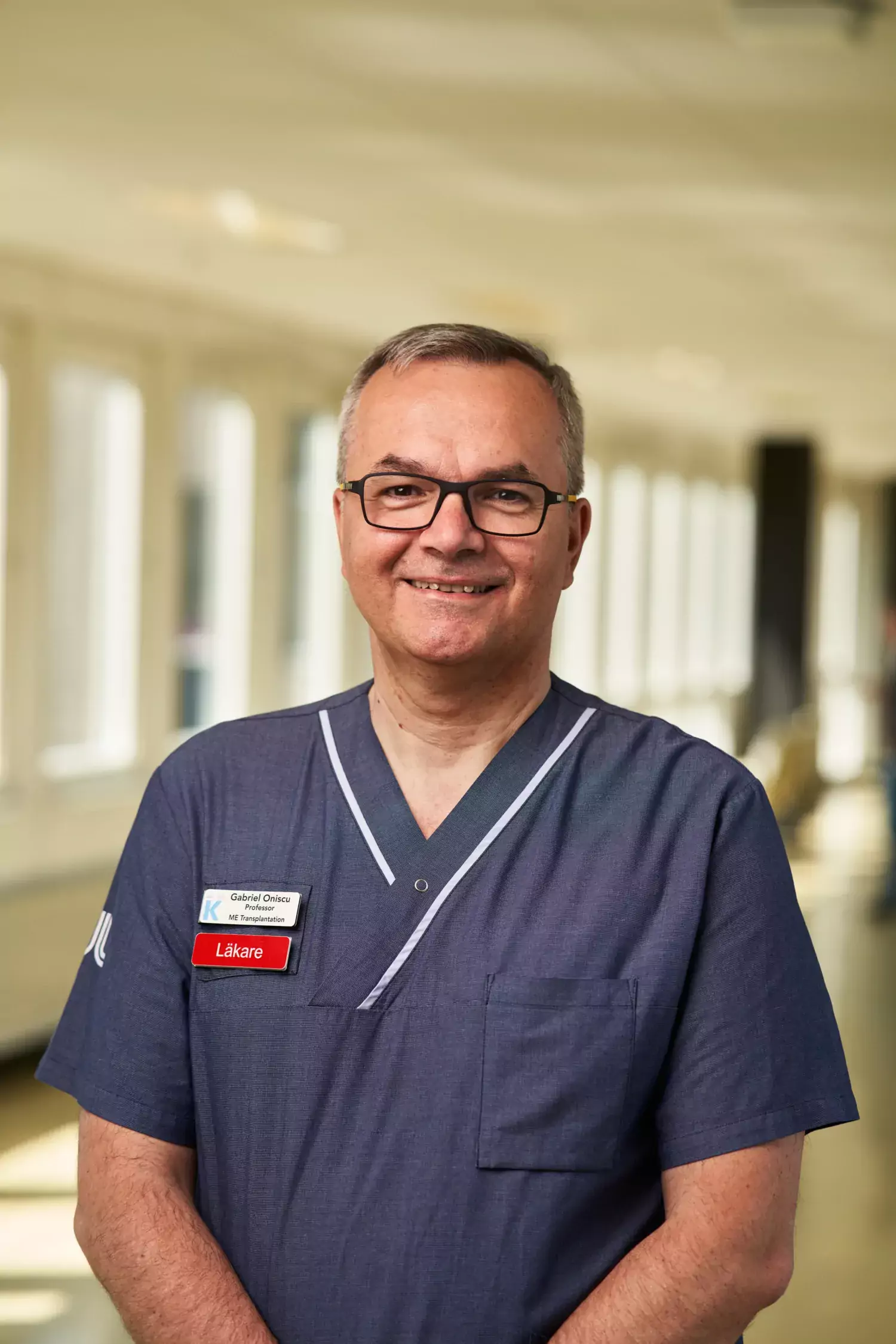More organs for transplantation with gentler techniques
Gabriel Oniscu is increasing access to organs for transplantation by using a technique that makes it possible to preserve, evaluate and improve organs outside the body before they are transplanted into the recipient.

What are you researching?
“I’m a transplant surgeon and I’m researching different ways to help more patients in need of a transplant. My earlier research focused on how patients were placed in a queue awaiting a transplant. In recent years, much of my research has focused on the use of new techniques by which organs are preserved in a process involving blood circulation at normal room temperature instead of cold storage.”
What are the advantages?
“The technique is gentler on the organs. They’re subjected to less oxygen starvation and therefore have less damage. Another advantage is that restoring blood flow to the organ allows us to examine how they function, which means we can accept many more for transplantation than we once could. Since there’s a general serious shortage of organs for transplantation, these are vital developments that will save lives.
We’d also one day like to improve organs outside the body before they’re transplanted to the host by, for instance, reducing the fat that has accumulated in a liver and rendering it transplantable. Currently, many organs are rejected for transplantation because they’re too damaged by age and disease.
Another very exciting possibility that perfusion of human organs outside the body introduces is that donated organs that aren’t suitable for transplantation can be used for research instead of, or as a complement to, animal models.”
How long do organs function outside the body?
“For research purposes, we can already keep some organs going for weeks. Eventually I think we’ll be able to do this for transplant organs. But for safety reasons, this will be achieved at a much slower pace.”
Text: Anders Nilsson, in translation from Swedish
First published in the booklet ‘From Cell to Society 2023’
About Gabriel Oniscu
Professor of Transplant Surgery at the Department of Clinical Science, Intervention and Technology
Gabriel Oniscu was born in 1968 in Iasi, Romania, where he graduated with a medical degree in 1993. He earned his PhD in 2003 at the University of Edinburgh, UK, since which time he has been a researcher at the University of Edinburgh and a clinician at the Royal Infirmary of Edinburgh. Oniscu was director of the Edinburgh Transplant Centre between 2019 and 2022.
On his recruitment to KI, he will be senior physician at Karolinska University Hospital.
Gabriel Oniscu was appointed Professor of Transplant Surgery at Karolinska Institutet on 17 April 2023.
